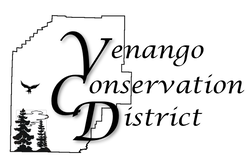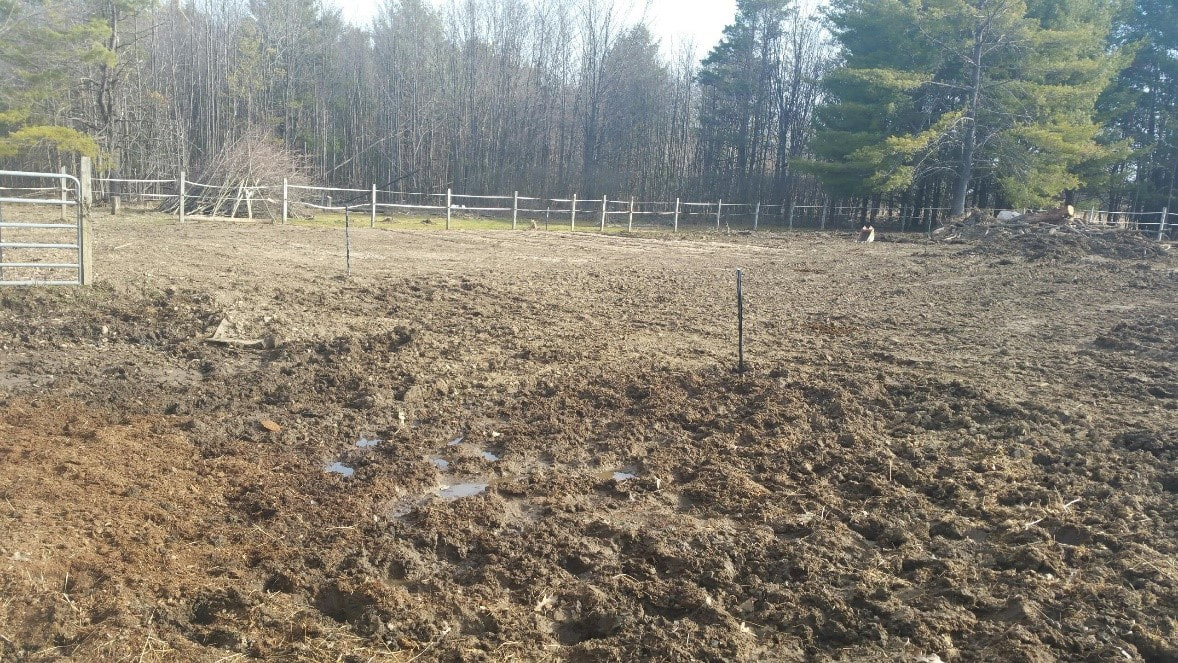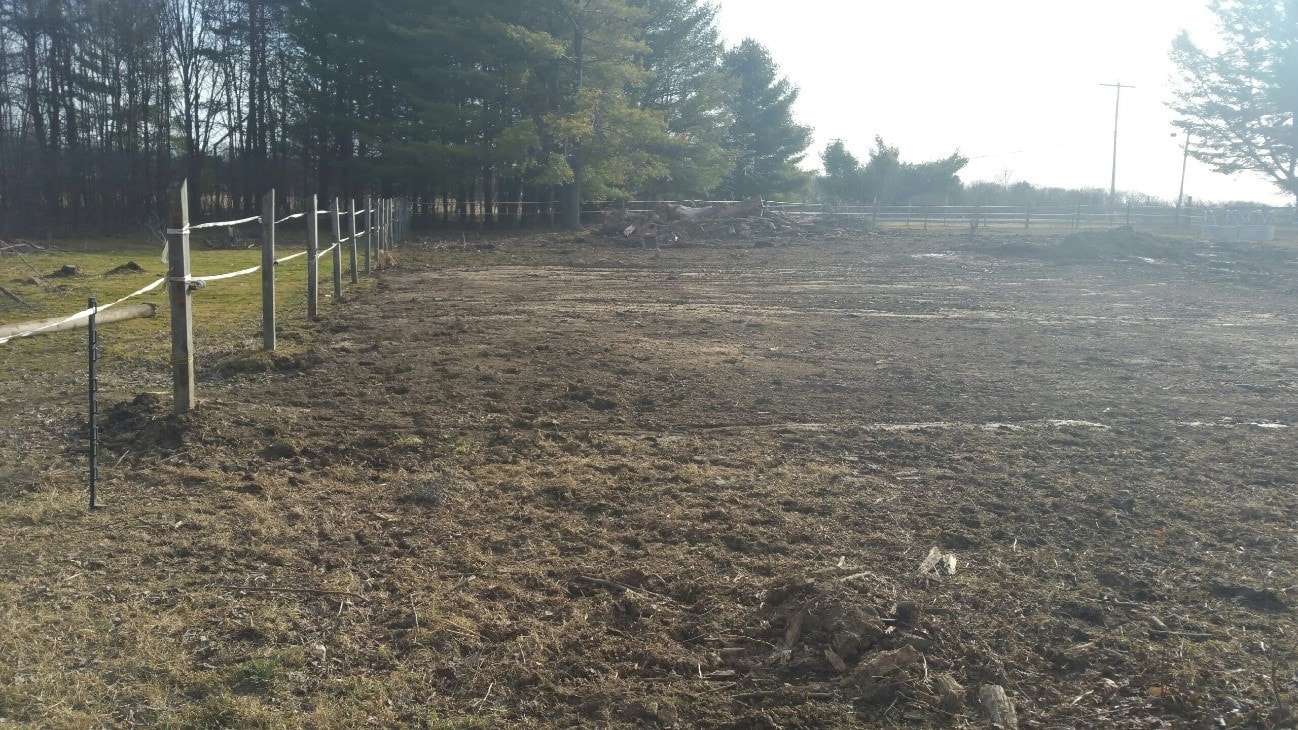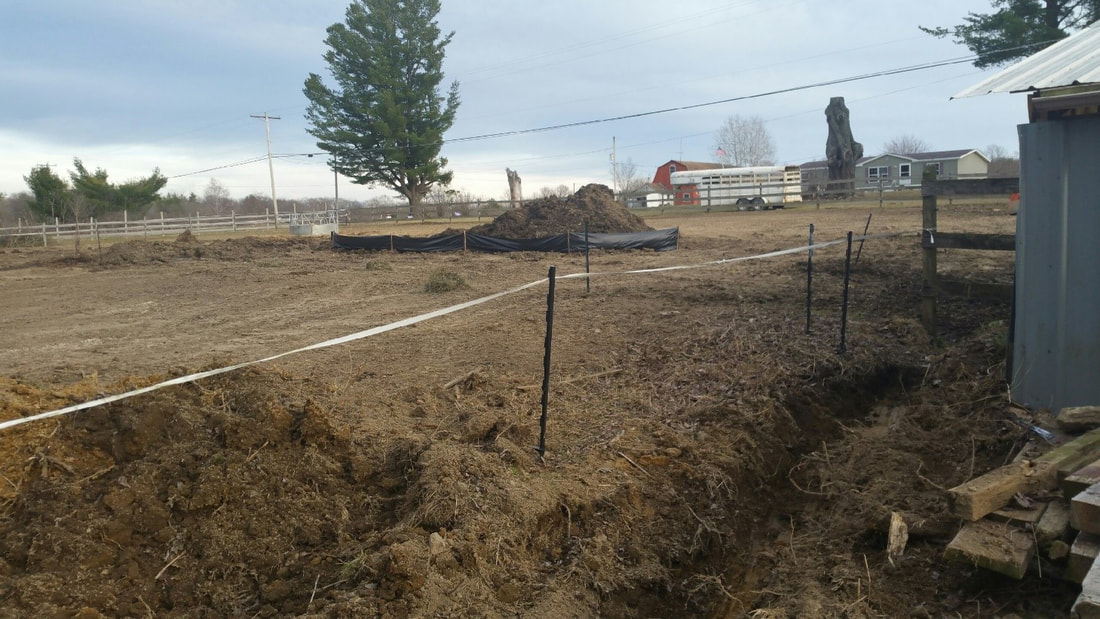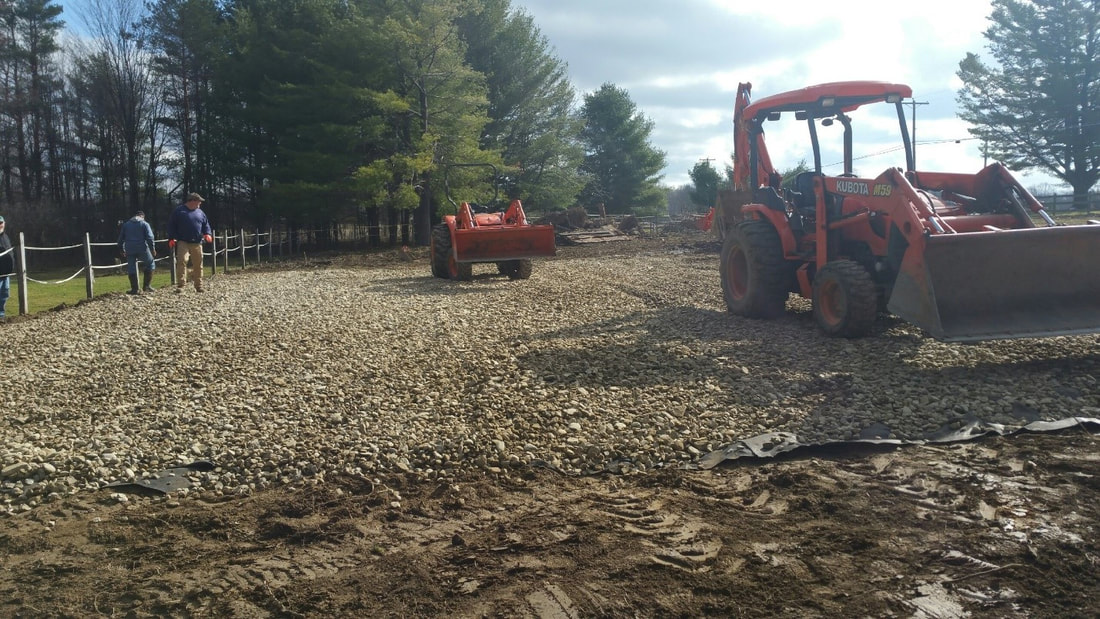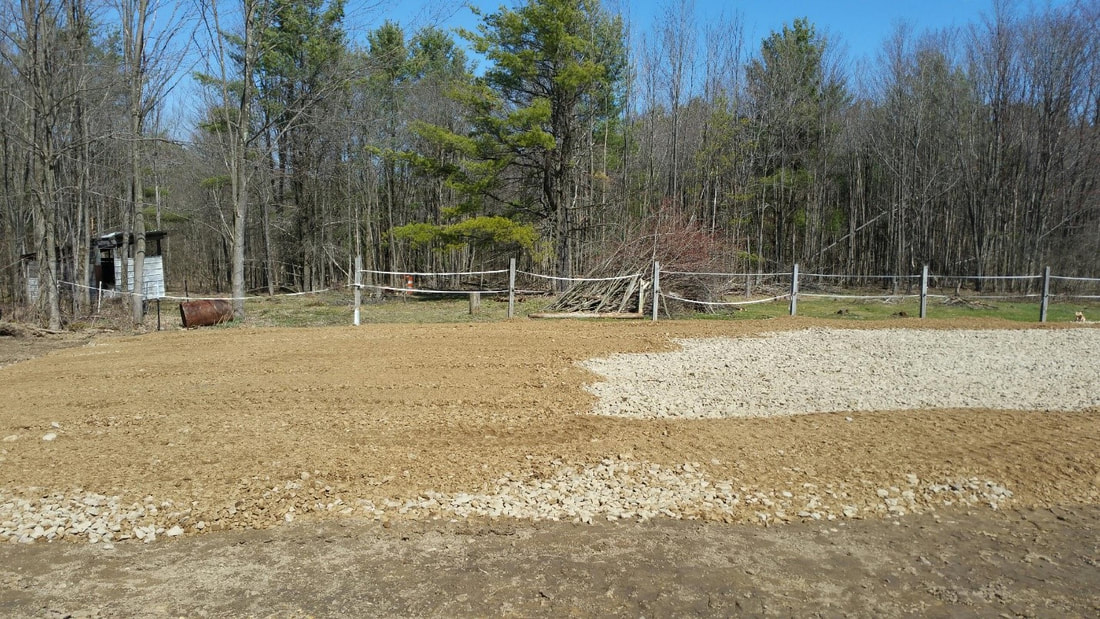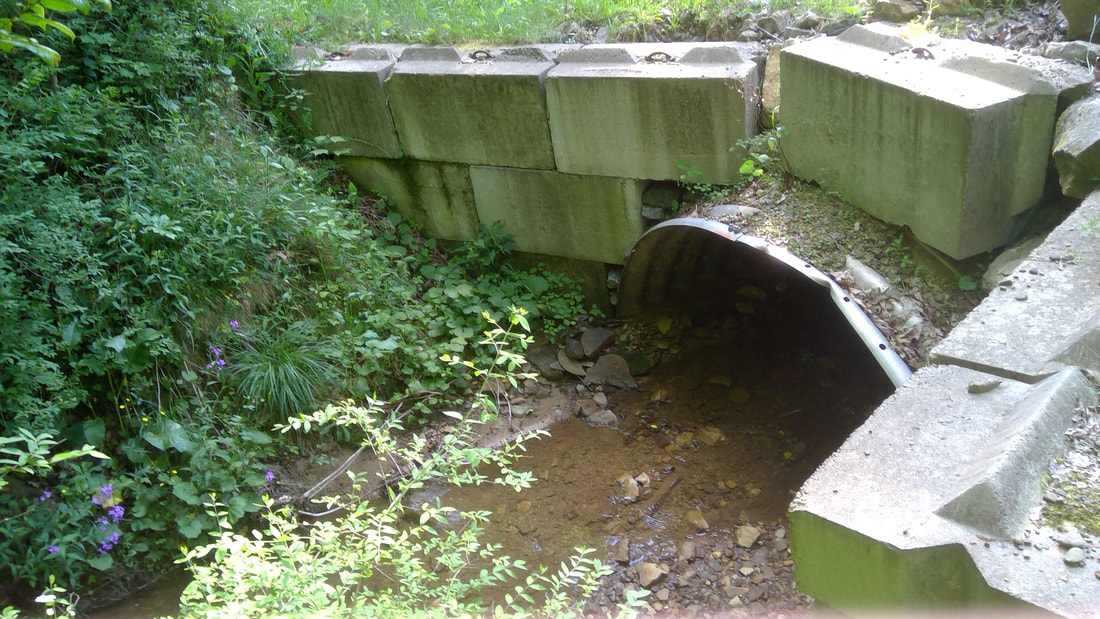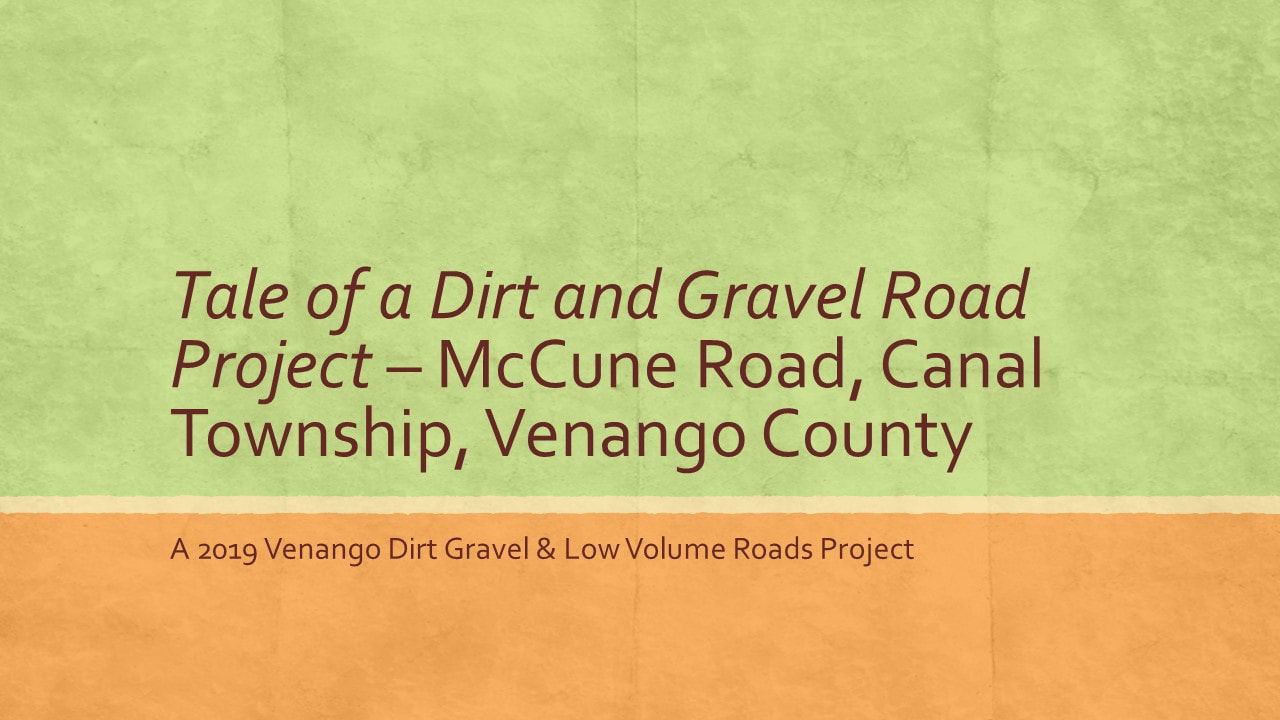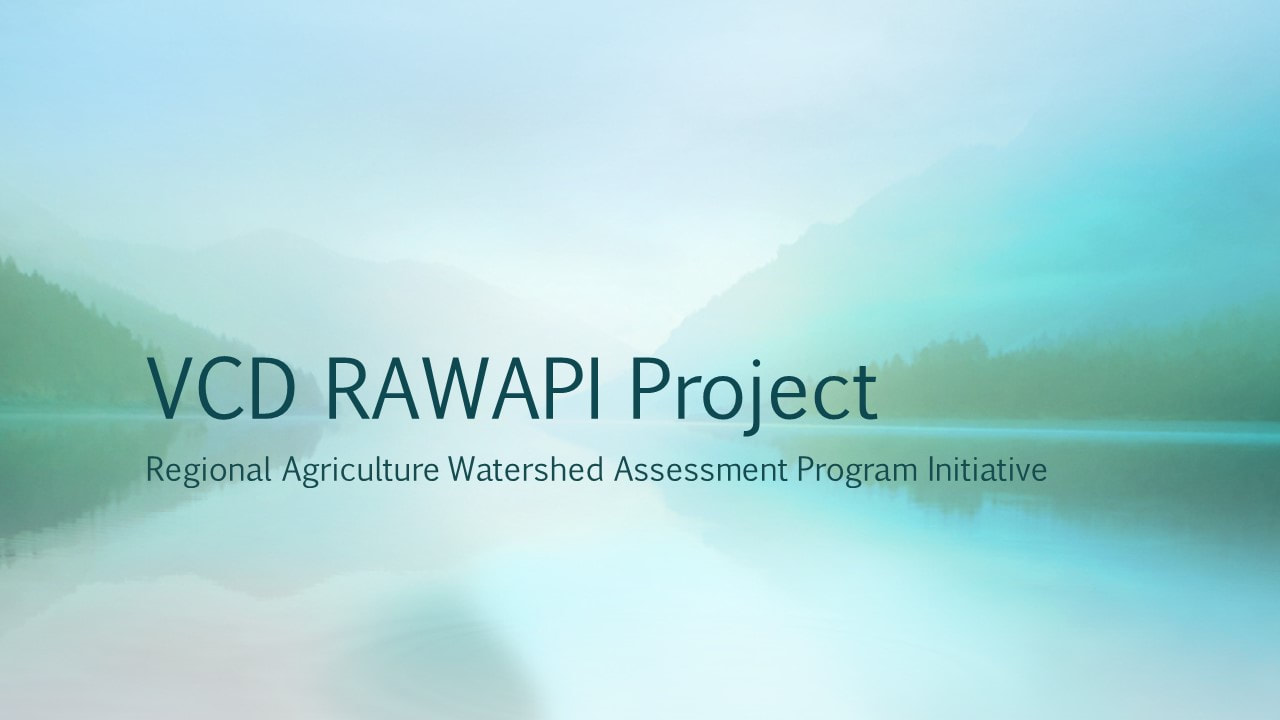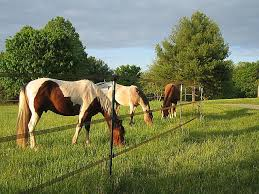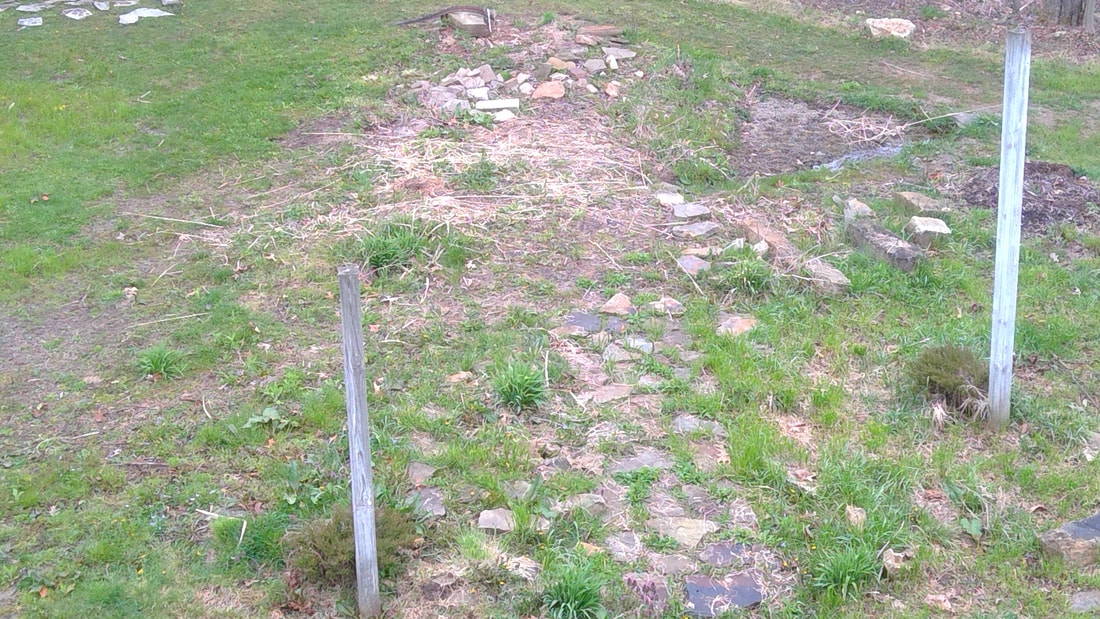|
The staff at the Venango Conservation District is so happy to be back to working from our office beginning in June of 2021. It was not easy being away, but during our time of working from home, the VCD Board of Directors and staff were busy working on securing a new home.
Two Mile Run County Park has been very generous over the years in providing us office space on the Park. Our office is located at 1793 Cherrytree Road, Franklin PA in a little house that overlooks the boat launch on Justus Lake. We’ve been happily installed at that location since 2007, but now we’re looking forward to a place of our own. In October 2020, the district purchased the former Happy Tails Veterinary Clinic property. A design architect was hired and a contractor received a bid award to renovate the Clinic building so that we can utilize the space as our office. Once renovations are completed and we are able to move in, the Park can begin to utilize the little house we called a home as a rental space where visitors can stay. The benefits of this move is to secure a location that is owned by the district. In this way we are less dependent on the County to provide a space for us. The new property at 4871 US 322 includes several garage spaces that will provide secure storage for our large equipment. The new office space is large enough for our staff to grow in the future. There is even enough room to hold meetings and educational programs. The VCD is grateful to the Park for continuing to offer space for us until renovations are complete at our new property. We hope that visitors to the park who stay at our soon-to-be former office will be as happy with the location as we have been.
2 Comments
The Venango Conservation District recently received grant funding to help us pay for the installation of agricultural Best Management Practices (BMPs) in Venango County. The funding was awarded to the district through the Northwest Commission’s Greenways Block Grant program which includes funding from the Pennsylvania Department of Environmental Protection. The goal of the grant is to install agricultural BMPs at an operation in Venango County that will help control storm water runoff that carry potential contaminants to the nearest stream. Agricultural BMPs that will be installed as a result of the grant award will include a stabilized Animal Heavy Use Area (AHUA) and roof runoff controls & diversion. Pictured here is the AHUA before construction at the barn entrance. A stabilized Animal Heavy Use Area (AHUA) is a practice that addresses areas where animals often travel or stand. These areas tend to be near barn entrances or feeding areas. These areas most often consist of torn-up sod that is muddy and erosive. Vegetation often cannot take hold. Pictured here the AHUA has been excavated to remove soils that were to heavily broken down to be of use. The area was shaped for a slope that will encourage storm water into a controlled drainage system. This is a shot of an excavated trench where a pipe and clean stone will be installed. This controlled drainage system will carry storm water to a Vegetated Treatment Area (VTA) where vegetation will collect pollutant particles and will allow storm water to infiltrate. Once the site was excavated to the desired shape, geo-fabric was installed and larger rock was placed. The materials in this step encourage drainage. This photo shows that a layer of smaller stone was then placed and rolled in to create the stabilized pad. The pad is designed to withstand heavier animal traffic.
Construction work on this project will be on-going this summer. We look forward to bringing you an update to this post including photos of the finished BMPs. (Harrisburg, PA) – Recognized by both the Pennsylvania State House and Senate, April 18-24, 2021 has been declared “Conservation District Week.” During this week, district offices across the state will hold events and meet with legislators in their home county.
Each county has a conservation district office except Philadelphia. These volunteer directors and staff address conservation concerns in their community. These are your neighbors who are working to prevent pollution in your backyard. That deserves to be celebrated! “Conservation district staff work every day to make a difference for Pennsylvanians,” said Brenda J. Shambaugh, Executive Director of the Pennsylvania Association of Conservation Districts. “Conservation District Week is an opportunity to celebrate and showcase conservation district projects across the state.” Conservation districts thank Governor Tom Wolf and members of the PA House and Senate for supporting the districts through the state budget. PACD is requesting level state funding, which has not been increased for over fifteen years, but will offset conservation district costs associated with protecting the Commonwealth’s natural resources. # # # The Pennsylvania Association of Conservation Districts, Inc. (PACD) is a non-profit organization whose guiding values include: Sustainable Resource Conservation; Integrity, Local; Education and Outreach; and Partnerships. PACD primarily serves as the collective voice for Pennsylvania’s 66 county conservation districts. For more information about PACD, visit www.pacd.org. The Venango Conservation District is partnering with Pennsylvania Trout Unlimited and the Center for Dirt and Gravel Roads Studies to present two stream crossing replacement workshops.
The first workshop will be held on Wednesday July 8th 2020 at the Nature Lodge on Two Mile Run County Park starting at 9:00am. We'll spending the morning in a classroom style presentation where we'll talk about Dirt Gravel and Low Volume Roads Program site eligibility for stream crossing as well as program policy requirements. We'll also cover the program application process, engineering, planning and permitting, along with construction considerations. The second workshop will take place on Union Street in Cornplanter Township on Thursday July 23rd starting at 8:30am. We'll meet at the site of a pending stream crossing replacement for this construction season. Well discuss the site and will highlight critical elements of construction. Anyone interested in attending any or both of these workshops is encouraged to register with Lisette Lane by email llane.vcd@outlook.com or by telephoning the district office at 814-676-2832. Click here for an agenda for the July 8th workshop. Click here for an agenda for the July 23rd workshop. We hope you enjoy this story slide show of the 2019 McCune Road Dirt and Gravel Road project in Canal Township, Venango County.
In the spring of 2014, a fish kill event at Kahle Lake in Venango and Clarion Counties prompted the Pennsylvania Department of Environmental Protection (DEP) to conduct an evaluation of the watershed. DEP found that excessive nutrients like phosphorous and nitrogen were present in the watershed. They determined that these excessive nutrients were most likely to have caused the fish kill event and that agricultural practices were the most likely contributors to the pollution.
The Pennsylvania DEP Regional Agriculture Watershed Assessment Program Initiative provided funding for watershed impairment improvements in one county in each of the DEP regions in 2014. DEP awarded funding to the Venango Conservation District through this program. The district was tasked with four aspects to correct this pollution problem. The district assessed and identified sources and potential sources of pollution in the Kahle Lake watershed. The district also worked to create corrective plans. The district worked to develop designs and engineering of Best Management Practices on agricultural operations and, through this funding were able to construct practices to reduce the nutrient overloading problem. The Venango Conservation District was able to accomplish the scope of work outlined by DEP for the initiative. The district was then able to identify three additional agriculturally impaired watersheds in Venango County which could benefit from the same practices. Five agricultural operations were able to take advantage of the funding to construct Best Management Practices to reduce pollution. This project was a success in large part because the district was able to coordinate with several organizations like DEP, the US Department of Ag Natural Resource Conservation Service, PennDOT, Team Ag and all the operation owners. All of these folks worked together to accomplish the scope of work for this project. Best Management Practices(BMPs) can be used as a term to describe a type of water pollution control or treatment. Some practitioners also use the term BMP to describe both structural or engineered control devices and systems to treat polluted stormwater, as well as operational or procedural practices. For example, minimizing the use of chemical fertilizers or were and when these chemicals are applied.
In agriculture there are numerous BMPs that can be implemented on any operation or farm to control manure and sediment, stormwater, or chemicals. These BMPs first act as control devices to keep the clean water clean and capture and treat polluted water or divert and treat polluted water before it reaches our waterways. As rain water runs off our streets, parking lots, lawns, and other surfaces, it picks up pet waste, pesticides, fertilizer, oil, and other contaminants. If the water doesn’t evaporate or soak into the ground, it flushes straight into local creeks and rivers adversely affecting water quality and aquatic life. Currents of runoff scour stream banks, destabilize the natural contours of the streams altering their depths. Eroded dirt from the runoff blocks sunlight from reaching underwater vegetation, and smother the aquatic homes of other life. As grasses and marine life die, fish and other creatures that rely on them are jeopardized. The runoff also carries nutrients that spur algae blooms, leading to low oxygen in the water resulting in fish kills. The Venango Conservation District works with landowners who are involved in an agricultural practice with technical assistance or financially through finding grant funds. We received a grant for $18,000 to work with a landowner on installing BMPs on their farm. The funding was DEP Growing Greener distributed though the Northwest Commission. The BMPs designed to be installed will limit the amount of nutrient laden runoff leaving the animal area and divert clean stormwater around the premises limiting the pollutants entering a creek in Northern Venango County. Most creeks and open water in Venango County contain significant portions that are open to public fishing and are stocked with trout. Runoff from this farm not only effects the local watershed but then drains into the next watershed of Oil Creek which is within Oil Creek State Park. *** If you are a landowner interested in any further information on how you can get technical assistance,*** questions answered or to inquire about potential grant opportunities, call the Venango Conservation District or email our Agriculture Technician at jane.price8484@gmail.com So, three years ago, my teenaged daughter decided she should carve out her own signature in our yard by starting a pollinator garden. She cleared an area and even planted some flowering shrubs. Then she went off to college and that was the end of that.
She had the best intentions. There has been so much buzz (pun intended) in the last few years about pollinator decline. She wanted to take some action and I am proud of her for that. Meanwhile, back at the weed patch – I mean “pollinator garden” – it is now on me to shape this project into something. I asked myself, what do I need to do in this garden to support pollinators successfully. After some research, I noted that pollinators are more than just butterflies. Bats, birds, beetles, bees AND butterflies and even the wind can all be utilized by nature to pollinate plants. I can’t provide for ALL those species – that thought is a little overwhelming. I’ve decided to focus on bees. I’m not sure what I can do in my backyard to have an affect on the varroa mite infestations which spread hive diseases. I did learn that a loss of habitat is a factor in bee decline, along with exposure to pesticides. I don’t use pesticides in my yard, so I’m already a step in the right direction. Now for habitat considerations. Researches are suggesting that homeowners utilize wildflowers in a selection of their lawn, instead of just growing grass. Bee habitat is my goal. I don’t want to tend hives in my backyard, but I can provide support for solitary bees, which are pollinator bees that are already in my neighborhood. I figure native plants are a good choice. I live in a wooded area, so there are plenty of places for solitary bees to nest. My garden will be about providing food. Bee Balm, sunflowers like Black Eyed Susans, and Cone Flowers are native flowering plants with a nice range of bright native color to attract pollinators like my neighborhood bees. These types of plants will also attract other pollinator species as a bonus. I also need to consider what native plants bloom at different times of the year in order to keep the food supply available for the growing year. The bottom line is that, to be successful, I’ll need to put a lot of planning into a garden to benefit bees. It may take a couple of years to fiddle around with plants and placements. It looks like I’ll need to submit a follow-up or two to report my pollinator garden progress. Meanwhile, check out this really great brochure from the Pollinator Partnership: https://www.fs.fed.us/wildflowers/pollinators/documents/simpletruthbrochure.pdf Pennsylvania’s Governor ordered those of us in Venango County to stay at home effective at the end of the day March 20th. As a result, all of us at the Venango Conservation District are working from home. The office has been posted as closed and anyone needing to reach us is directed to call the office (814-676-2832) and leave a message or to contact us via email (llane.vcd@outlook.com).
WE ARE STILL WORKING FOR NATURAL RESOURCE MANAGEMENT IN VENANGO COUNTY The success of keeping the wheels of work running for the VCD is the tireless work of Lance Bowes our District Manager. He sees to it that the answering machine messages are directed, that the snail mail is distributed and that staff are accomplishing the work that the VCD does. Lance is coordinating tele-meetings including our regularly scheduled board meetings for April and May. Staff is now permitted to perform some work in the field beginning May 11th. Staff will be following protocol modeled after the Governor's recommendation for social distancing and virus safety. Even with our restrictions, staff has been busy with position development, permit reviews and with applications to funding sources for future projects in Venango County. We are all very much looking forward to getting back to the office and the field after this crisis. For now, we’re still getting good things done for Venango County – just from home. April 22, 1970 – the day of the vernal equinox. I was only a toddler then, but growing up, I didn’t have much knowledge of Earth Day as an annual event. Growing up in the 70’s in rural Northwestern Pennsylvania, my world was a little sheltered as my neighborhood was small. I carved out regular play areas in the woods near my house, I rode my bike regularly through a nearby State Park and I splashed around in a neighborhood fishing hole, unaware of the problems of pollution.
Thank goodness someone was paying attention. All across the US, people were organizing Earth Day events to bring about awareness and change for the benefit of our planet. Some of those early efforts provided kids like me with Natural Science education such as articles in the school’s Weekly Reader publication. I remember a show on Saturday morning called the Big Blue Marble. Even the weeping Native American commercial stuck with me as a kid. My parents were an influence on my Earth appreciation. We all enjoyed trail walks in the woods, and campfire cook-outs. Composting and keeping an organic vegetable garden became a way of life at home, but I never put those outreach efforts and parental attitudes together with Earth Day until I was an adult. In 1970, the Venango Conservation District was not even a decade old. The district concentrated on soil health and working with local farmers to achieve soil conservation. In the 1970’s the district grew to working with invasive species concerns and eventually with water quality concerns in Venango County, including environmental education and outreach. Some consider the 1970’s the Environmental Decade”. After all, a number of laws came to effect in that decade. The Clean Air Act, the Water Quality Improvement Act, The Endangered Species Act, the Toxic Substances Control Act, The Surface Mining Control and Reclamations Act were all put into law in the 1970’s. In 1970 the Environmental Protection Agency was formed. That was a lot of change for ten years. Meanwhile, Earth Day has grown into a global celebration. In 1990 a Global Earth Day was organized. More than 200 million people globally participated in Earth Day events that year. In 2016, the Paris Climate Agreement was signed on Earth Day. In recent years, more than one billion people participate in Earth Day events making Earth Day the biggest civic event in the world. Popular Earth Day events might include river clean-up events, tree plantings and outdoor educational activities. This year, in 2020, as Earth Day is upon us, we are dealing with a major lifestyle change in social distancing with the COVID-19 pandemic. Gathering together for this 50th anniversary of Earth Day will have to wait, but that does not mean that I can’t do my thing at home to celebrate Earth Day. Weather permitting, I will take a walk outside, continue work on my pollinator garden and tune in for a nature documentary or two. I can access a list of things I can do at home at www.eathday.org/eath-day-at-home/. I hope you join me in your own at-home Earth Day activities. Let’s keep the Earth appreciation outreach and attitudes going. |
CATEGORIESs
All
Archives
April 2024
|
